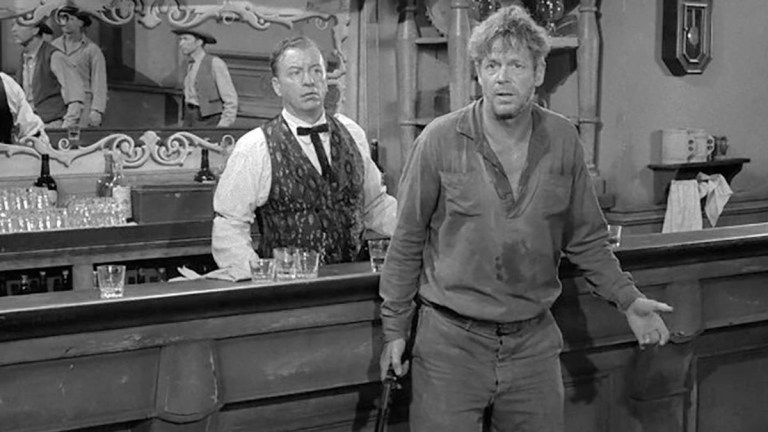The Twilight Zone addressed the dangers of nostalgia at at time that many are hopelessly nostalgic for.
Social criticism is the foundation ofThe Twilight Zone.
The sci-fi genre offered the perfect camouflage for Sterlings ambitions.

Those who knew the horror of such real-life atrocities could watchThe Twilight Zoneand understand what was being said.
Those who didnt…well, the show never seemed to be too concerned about them.
He soon finds himself near Homewood: the town where he grew up.
After a nearly disastrous encounter with his younger self, Sloan confronts a hard truth.
The past is no longer his world.
The Twilight Zoneeventually grew to include numerous episodes that addressed similar themes.
A Stop at Willoughby sees a man kill himself in pursuit of simpler times.
Yet, Walking Distance is often considered the shows definitive statement on nostalgia.
Its an incredible piece of television storytelling that eloquently addresses that eternally powerful message You cant go home again.
Walking Distance is also Serlings most personal look at nostalgia.
It was largely based on trips he would take back home following the death of his father.
According toSerlings daughterAnne, those trips were Serlings way of going back in time.
Serlingonce described nostalgiaas his major hang-up.
He too often desired to go back to how it was as we remember it.
Anne says that the biographical nature of the episode makes it one of her favorites in the series.
The irony of wanting to go back and change that episode was likely not lost.
Serlings battles with nostalgia may be the key to what makes many ofThe Twilight Zones nostalgia episodes so effective.
They often present the hopelessly nostalgic as tragic figures but not necessarily victims.
They need to be taught a lesson, and some lose everything learning it.
Sorrow is at the root of the word nostalgia, and sorrow is at the heart of those episodes.
There is another quality that separates those nostalgia episodes from the pack.
However, there are a few specific things that were broadly considered Golden during that era.
It was also regularly referred to asa golden age for television, whichThe Twilight Zonewas a small part of.
The dangers of widespread unified standards of beauty are explored in Eye of the Beholder.
Increased attempts at censorship at the highest levels of government and business formed the basis of The Obsolete Man.
Its strange, then, to consider how many episodes ofThe Twilight Zonedirectly deal with the dangers of nostalgia.
Like many of the time-traveling protagonists ofThe Twilight Zone, they want to be rid of the modern world.
You Cant Go Back
Nostalgia is an almost unavoidable part of the human experience.
It is a source of pain and joy that we all must live with.
Yet, feeling nostalgic is not inherently a bad thing.
I often write retro-focused articles and enjoy looking back at the past both wistfully and critically.
Even right now, were discussing a 65-year-old show.
Theres undoubtedly some part of your childhood that you cling on to past the point of reason.
However, things only become disastrous in those episodes when their protagonists attempt to force their way back.
It is in those attempts that everything goes horribly wrong.
The Twilight Zonedoesnt warn us to not feel nostalgic.
That would be impossible.
Perhaps more importantly, it warns us against trusting those who say they can offer such a thing.
We sadly can not.
Those are luxuries only found inThe Twilight Zone.